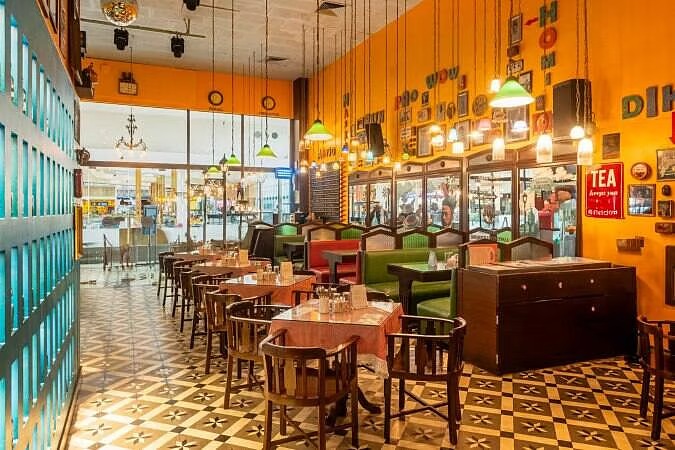Kolkata’s iconic heritage cafés are undergoing a remarkable transformation, evolving beyond their traditional roles into vibrant creative hubs that attract local artists, global tourists, and young urban professionals alike. Rooted in colonial-era architecture and steeped in rich cultural history, these cafés are now fostering artistic expression, cultural exchange, and innovation, making them hotspots of creativity on the global map.
The Rise Of Heritage Cafés As Cultural Epicentres
-
Many heritage homes and colonial mansions in Kolkata have been repurposed into cafés that retain historic architectural elements like ornate stucco ceilings, grand staircases, and period furniture.
-
Establishments such as The Red Bari, The Bhawanipur House, and Byloom Canteen serve as more than coffee spots—hosting exhibitions, literary events, music evenings, and design fairs that celebrate Bengal’s artistic heritage.
-
These cafés provide intimate spaces where artists, writers, musicians, and entrepreneurs gather for adda—the quintessential Bengali social and intellectual exchange—reimagined for a contemporary, cosmopolitan audience.
Balancing Authenticity And Urban Renewal
-
Adaptive reuse of these colonial spaces addresses the challenge of preserving Kolkata’s architectural legacy amidst urban pressures and real estate development.
-
While this trend caters largely to upper-middle-class and English-speaking demographics, it opens new avenues for cultural tourism and creative entrepreneurship.
-
There is ongoing dialogue about ensuring these spaces maintain authenticity and community inclusivity rather than becoming mere lifestyle commodities or Instagram backdrops.
Economic And Social Impact
-
Heritage cafés contribute to the local economy by drawing tourists and supporting artisanal food and craft producers.
-
They encourage sustainable conservation by giving historic structures a functional life, making preservation economically viable.
-
Community events and coworking spaces within these cafés foster collaboration and innovation, nurturing new creative industries.
Future Prospects And Challenges
-
The sustainability of this model hinges on balancing commercial success with cultural integrity, long-term maintenance costs, and evolving consumer trends.
-
These cafés could become incubators for wider heritage-led regeneration projects if community engagement and inclusive practices expand.
-
In essence, Kolkata’s heritage cafés are redefining themselves as global creative hubs, where history, culture, and modern urban vibrancy coexist to inspire new forms of artistic and social interaction.
Source: Homegrown, Red Bari Kolkata, The Bhawanipur House, Byloom Canteen, Kolkata Cultural Reviews

